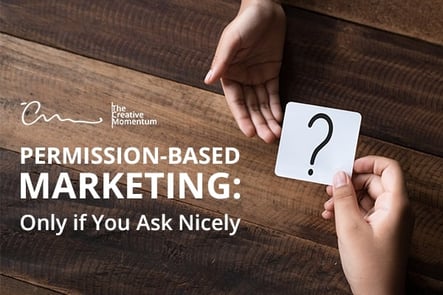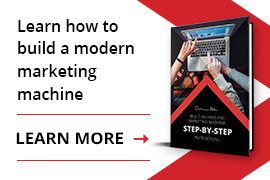
Remember the rapturous joy you felt last time you were contacted by a telemarketer? Sure, you were stretched thin at work, and your home life landed somewhere between Hurricane Katrina and Bosnia circa 1995, but – get this – you might be overpaying for your family minutes!
Ok, take a deep breath.
Your Break from Scheduled Programming
Telemarketing is one of many tactics that fall under the umbrella of interruption marketing. The term “interruption marketing” was coined in the late 90s by digital marketing guru Seth Godin in contrast to permission marketing. Radio commercials, billboards, and spam are all examples of interruption marketing. These are tactics designed to force their way into your line of sight, with or without your consent. As it turns out, people aren’t particularly fond of being badgered with constant demands for their attention through intrusive advertisements. As the war cry of consumerism grew to a fever pitch throughout the 90s, the saturation of interruption tactics made it increasingly difficult to get through to a target market. Something had to change.
The Value of Consent
Consent is kind of a big deal. Consent makes the difference between charity donations and taxes. It makes the difference between happily browsing your local yelp results and testifying before the Senate about a data breach. As it would be, people don’t like having their hands forced. The same basic principle applies to providing time, attention, and personal information. This is the crux of permission-based marketing: if you can convince people to provide their attention or feedback voluntarily, you automatically set yourself apart from the crowd.
The way to accomplish this is surprisingly simple.
The Principle of Exchange
Seventy-seven percent of Americans now own a smartphone. The vast majority of us walk around with questions on our mind and a computer in our pocket. People want answers. If we live in the information age, then inbound marketing tactics and permission marketing tap into the information economy.
Whether your business model targets consumers or other businesses, there’s valuable insight out there to inform the decisions of your buyers. When you provide these resources, you capture people’s attention as an authority. You’re presented with the opportunity to nurture a relationship with your clientele, and you’ve effectively initiated the process of an exchange – information in return for attention.
Resources like blog posts, podcasts, and white papers all provide the type of information that people seek out willingly. If you connect with your visitors, they will come back for more during their buyer’s journey. Throughout this process, you’re presented with the opportunity to learn more about them. You can offer a mailing list subscription to provide continued resources. You can provide premium content in exchange for email registration. You can convince your buyers to provide their attention and information with their own consent and win them over in the process.
By now, it should make sense where the phrase “content is king” came from. The quality of the resources that you provide is what reels people in. If you’re good at what you do, then you have something to say. When spoken with value and authority, people will listen of their own volition, and you will have taken the first step towards a permission-based model.


